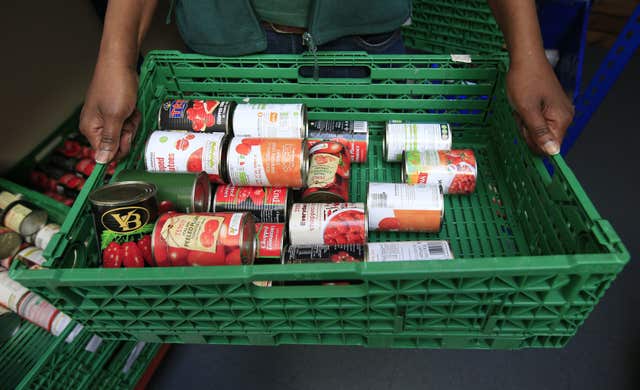The kind-hearted everyday heroes of the pandemic who produced thousands of meals for key workers in their hour of need have been rewarded for their efforts in the Queen’s Birthday Honours list.
Caterers, chefs, taxi drivers and community volunteers cooked and delivered food from the nation’s kitchens to ensure under pressure NHS staff and the vulnerable stayed fed at the peak of the Covid-19 crisis.
As the virus struck last year, brother and sister, John Brownhill, 54, and Amanda Guest, 58, found themselves inspired by the emotional viral video from Yorkshire nurse, Dawn Bilbrough, who made a heartfelt plea for shoppers to stop stockpiling food.
Ms Guest, from Holmfirth, West Yorkshire, who runs an event catering business and restaurant, said: “That’s when we decided that we would start producing fresh, delicious meals and send them out to the hospitals.”
The co-founders of the Food4Heroes initiative, honoured with a British Empire Medal (BEM), sent their first deliveries to Huddersfield Royal Infirmary that month, with the project eventually growing to produce nearly 250,000 meals for more than 50 hospitals, ambulance stations and food banks.
“We got various different chefs who obviously had nothing to do, no work, who were really keen on helping and really keen to make these meals and without them we definitely couldn’t have done this,” Ms Guest said.
“I’ve got one chef in particular in Huddersfield who is still doing meals a year later.”

Ms Guest and Mr Brownhill, both parents of two, said they were “shocked” and “delighted” by their honour and hailed the army of volunteers who helped them.
“It was very much hands on and we got to see all the nurses and doctors and everybody involved in the hospital and they were absolutely thrilled to bits,” Ms Guest said.
“It was lovely for them to get a proper meal and not have to go to a vending machine and get a packet of crisps and a KitKat.”
She added: “We had people making cakes and we had people donating fruit. It was just amazing. The support we had was incredible.”
Mr Brownhill, of Canons Ashby, Northamptonshire, said: “You see in a time of crisis the strengths of humanity I think”, adding: “Just to see everybody come together in the way that they did, it was incredibly rewarding.”
He said: “We’ve had some great feedback from the recipients of our meals … but this award is a real icing on the cake.”

Elsewhere, the owner of Cambridge taxi firm, CamCab, Rowhi Mahmoud Nemer, 63, is made an MBE for community service after he offered free rides to NHS staff during the first national lockdown.
On average, more than 100 key workers a day used his fleet of about 150 vehicles, with Mr Nemer often waiting outside surgeons’ homes in the early hours to transport them for serious operations.
He later offered a free food and medicine delivery service to the vulnerable and those shielding, and even re-mortgaged property in order to keeping paying his staff their salaries.
In north London, Daksha Varsani, 49, is honoured with a BEM recognising the work of the community response kitchen she founded with her partner in Wembley.
Since April last year, they have served more than 200,000 vegetarian Indian meals to NHS staff and vulnerable people in the capital, while Ms Varsani also oversaw the delivery of more than 85,000 care packages and food deliveries.
Brian Jones, 68, from Stockton-on-Tees, County Durham, is similarly awarded a BEM, for his voluntary work as CEO and co-founder of the Moses Project charity, which provides guidance and mentoring to young men with past and current addictions to drugs and alcohol.
During the pandemic, Mr Jones delivered food, often until late at night, to the most frail, the financially pressured and those affected by Covid-19.
After local hostels stopped feeding tenants, the Moses Project stepped in to provide more than 100 meals a day, while food parcels supported the charity’s clients made more vulnerable to their addictions by the pandemic.






